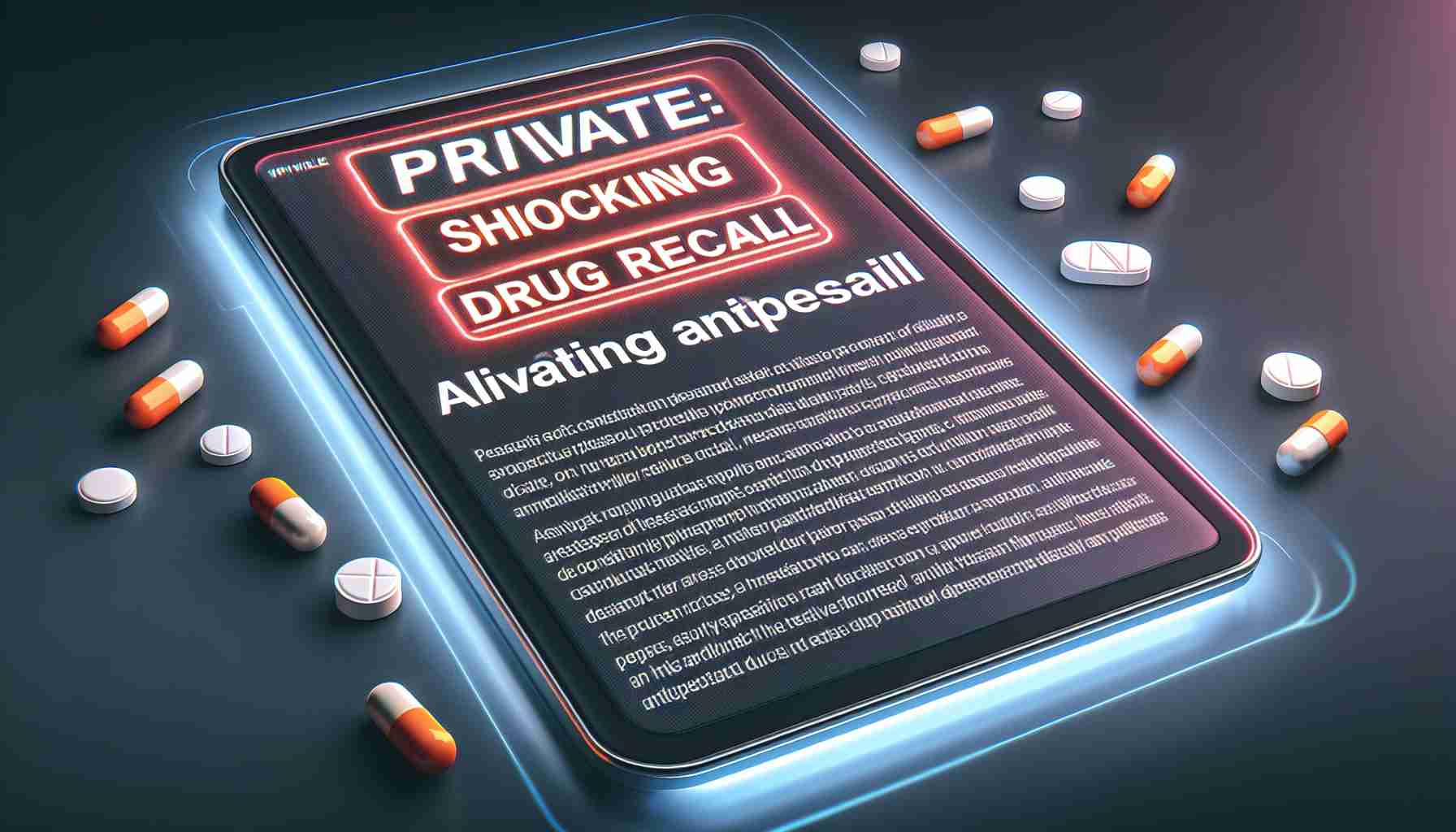The U.S. Food and Drug Administration (FDA) has announced a recall affecting thousands of bottles of a well-known antidepressant medicine due to a harmful chemical presence. The medication involved is duloxetine, marketed under the brand name Cymbalta. The recall began on October 10 and was voluntarily initiated following FDA concerns.
Potential Risk Alert
Duloxetine belongs to the SNRI class of drugs, commonly prescribed for anxiety, depression, and other mood-related conditions. The recall affects 7,101 bottles of duloxetine in a 20mg dosage, encapsulated in 500-count bottles. Manufactured by Towa Pharmaceutical Europe, these capsules carry the lot number 220128 and are set to expire in December 2024. The recall is nationwide across the United States.
What Triggered the Recall?
The recall was sparked by the discovery of elevated levels of N-nitroso-duloxetine, a nitrosamine compound that poses toxicity risks if ingested in large amounts. Concerns have risen as it may have cancer-causing potential at high concentrations. The FDA characterizes this recall as Class II, suggesting that while there may be some risk, serious health consequences are unlikely.
Steps to Take Now
If you are a patient using the affected duloxetine capsules, it’s crucial to maintain your prescription while consulting with your healthcare provider regarding any concerns. The FDA advises against stopping any antidepressant suddenly due to possible adverse effects. For further details, visit the FDA’s page on nitrosamine impurities.
The Dark Side of Pharmaceuticals: What You Didn’t Know About Medication Recalls
Unraveling Medication Recalls: Beyond the Headlines
The recent recall of duloxetine, known by its brand name Cymbalta, has sparked a deeper discussion about the broader implications of pharmaceutical recalls on patients, healthcare systems, and regulatory processes. While the recall of 7,101 bottles of duloxetine was initiated due to the presence of N-nitroso-duloxetine, a potentially carcinogenic compound, it introduces several layers of complexity into the pharmaceutical industry.
How Do Recalls Impact People’s Lives?
While the initial alert focuses on safety concerns, the ripple effects of such recalls can be profound:
1. Patient Anxiety and Compliance: The news of a recall can cause significant anxiety among patients who rely on these medications for managing mental health conditions. Concerns about safety may result in patients discontinuing use without proper guidance, worsening their mental health condition.
2. Pharmacy and Supply Chain Disruptions: Recalls necessitate the immediate removal of the product, which can lead to shortages. Pharmacies and distributors must navigate complex logistics to return recalled products and restock safe alternatives promptly.
3. Economic Costs: Beyond the immediate financial impact on manufacturers, recalls can strain healthcare systems that must manage increased patient consultations and potential treatment shifts. This can translate into higher healthcare costs shared by patients and providers.
Fascinating Facts and Controversies: What’s Heating Up?
– Regulatory Scrutiny: The role of organizations like the FDA comes under scrutiny during recalls. There are debates about whether their monitoring processes are sufficient and how they balance between swift action and thorough investigation.
– Chemical Contaminants in Medications: Nitrosamines, like the one found in duloxetine, are drawing significant research interest due to their prevalence and potential health impacts. The pharmaceutical industry is under pressure to ensure rigorous testing and quality control measures.
– Global Impact of Recalls: While the current recall is U.S.-specific, the global nature of pharmaceutical supply chains means that contamination issues can potentially impact international markets, raising questions about global oversight and cooperation.
Advantages and Disadvantages: A Double-Edged Sword
Advantages:
– Public Health Protection: Recalls are essential for protecting public health and ensuring that only safe and effective medications are available to consumers.
– Increased Awareness: They prompt both the public and professionals to become more informed about the potential risks associated with pharmaceutical products.
Disadvantages:
– Disruption to Treatment: Recalls can interrupt crucial treatments for patients, which might lead to exacerbation of their health conditions.
– Trust Issues: Frequent recalls can erode trust between patients, healthcare professionals, and pharmaceutical companies.
Questions Worth Asking
– How can pharmaceutical companies prevent contamination issues? Improving manufacturing processes and quality control is critical to minimizing the risk of contamination from nitrosamines or other harmful substances.
– What can patients do to stay informed and safe during a recall? Staying vigilant, consulting healthcare providers, and following updates from trusted sources like the FDA are key measures.
For further information, you can visit trusted sources like the FDA or the World Health Organization for updates on drug safety and regulations.
This recall serves as a reminder of the ongoing challenges within the pharmaceutical industry to ensure drug safety and the multifaceted impact recalls can have on society at large. It underscores the need for more stringent controls and proactive communication with the public to mitigate fear and promote health safety.




















